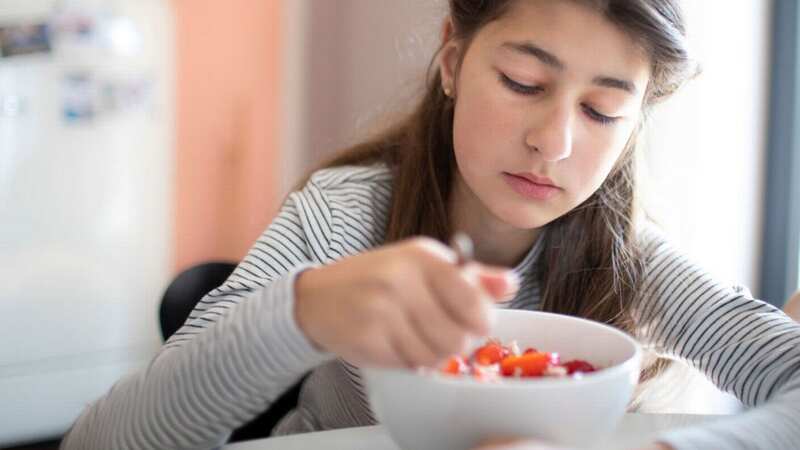Signs of ARFID as 'worrying' rise in people seeking help for eating disorder

This week is Eating Disorders Awareness Week (February 26 - March 3) and eating disorder charity Beat is raising awareness of a little-known illness.
The charity has reported they're receiving seven times more calls about a serious condition compared to five years ago, and they're urging NHS leaders to prioritise specialist treatment for the eating disorder ARFID. Beat described avoidant restrictive food intake disorder (ARFID) as a condition characterised by the person avoiding certain foods or types of food, having restricted intake in terms of overall amount eaten, or both.
This eating disorder may cause people to lose weight, but that is not a characteristic of it. It can occur at any weight and varies in different people.
Someone might be avoiding and/or restricting their food for several different reasons. The most common are the following three reasons, which are telltale signs someone might be suffering from the illness. You might see these referred to as subtypes of ARFID:
Sensory-based avoidance or restriction of intake
The person may be very sensitive to the taste, texture, smell, or appearance of certain types of food. They may also only be able to eat foods at a certain temperature.
 Teachers, civil servants and train drivers walk out in biggest strike in decade
Teachers, civil servants and train drivers walk out in biggest strike in decade
Concern about the consequences of eating
They may have had a distressing experience with food, such as choking or vomiting, or experiencing significant abdominal pain, which can cause fear and anxiety around food or eating, thus leading them to avoid certain foods, or certain textures of food. Some people may experience more general worries about the consequences of eating, and they may find it difficult to put into words, and they may restrict their intake to only "safe" foods.
Low interest in eating
In some cases, the person may not realise they are hungry in the same way that others would, or their appetite may not be good. For them, eating may be seen as a chore, and not something that is enjoyed, which results in them struggling to eat enough food.
In 2018, Beat's Helpline received 295 calls for support with ARFID, or 2% of total calls. By 2023, this figure had risen to 2054 calls or 10% of its total calls for the year, which they've said is "extremely worrying." Beat's research also found that there's a significant lack of information surrounding which eating disorder services across England provide ARFID support, which could lead to additional confusion and unnecessary distress in those seeking help.
Of the estimated 55 NHS Trusts or Community Interest Companies which provide eating disorder services for children and young people, 44 (80%) were unclear on their websites as to whether any of them provide or support treatment for patients with ARFID. In adult eating disorder services, 38 NHS adult eating disorder service providers (78%) were unclear as to whether any of them would be able to support ARFID patients.
Regarding the findings, Beat's Chief Executive, Andrew Radford, said: "It's extremely worrying that there has been such a dramatic increase in those seeking support for ARFID, particularly as specialist care isn't always readily available.
"All too often we hear from people who have been unable to get treatment close to home or have faced waits of months or even years to get the help they need. ARFID is an eating disorder that rarely gets the attention it deserves, and it's unacceptable that that seems to apply to funding, too. Now is the time for NHS decision-makers to ensure that anyone who needs support can get it from trained and fully equipped teams across the country."
If you're struggling with an eating disorder, please contact your GP, or seek specialist eating disorder support. Help is available from Beat. If you're in England, call 0808 801 0677. If you're in Scotland, call 0808 801 0432. If you're in Wales, call 0808 801 0433. If you're in Northern Ireland, call 0808 801 0434. You can text 27/7 for support too. Text SHOUT to 85258. You can also use their web chat service, or send an email. If you are in need of urgent help or medical advice for yourself or someone else please contact 999 or the Samaritans on 116 123 if you or someone else is in immediate danger.
Read more similar news:
Comments:
comments powered by Disqus

































